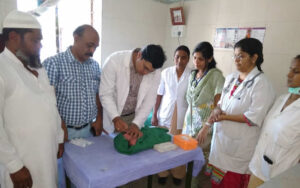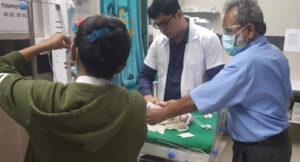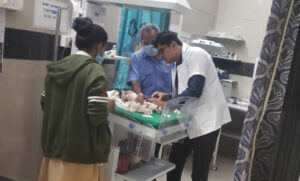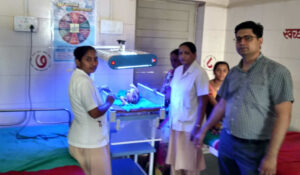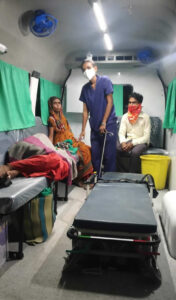
Expert Breast Feeding Councelling Clinic
Breastfeeding is an important aspect of newborn and infant care, as it provides the best nutrition for the baby and promotes bonding between mother and child. However, breastfeeding can be challenging for new mothers, and expert counseling can help address any issues or concerns.
An expert breastfeeding counseling clinic provides specialized support and guidance to mothers who are having difficulty breastfeeding. These clinics are typically staffed by lactation consultants or trained professionals who can provide one-on-one counseling, education, and support to mothers.
Some of the services offered by an expert breastfeeding counseling clinic may include:
- Assessing and addressing any issues with latch or positioning
- Providing guidance on milk production and supply
- Offering advice on common breastfeeding challenges such as sore nipples or engorgement
- Addressing concerns about infant feeding and growth
- Providing support for mothers who are returning to work or school while breastfeeding
- Offering guidance on breastfeeding multiples (twins, triplets)
In addition to one-on-one counseling, an expert breastfeeding counseling clinic may also offer group classes or support groups for breastfeeding mothers. These resources can help new mothers connect with others who are going through similar experiences, and can provide a supportive environment for learning and growth.
Expert Breast Feeding Councelling Clinic
Overall, an expert breastfeeding counseling clinic can be a valuable resource for new mothers who want to ensure the health and wellbeing of their newborns through breastfeeding.
Frequently Ask Questions (FAQ) -
Do you have questions about Expert Breast Feeding Councelling? We’re here to help! Check out the answers to some of most frequently asked questions.
Why is breastfeeding important?
How often should I breastfeed my baby?
How do I know if my baby is getting enough breast milk?
How long should each breastfeeding session last?
Can I breastfeed if I have sore nipples?
Can I breastfeed in public?
Can I breastfeed while working?
How long should I breastfeed my baby?
It is recommended that all infants should be exclusively breastfed for the first six months of life to achieve optimal health and development. Embrace the journey of breastfeeding with the invaluable assistance of lactation services. Problems related to breast-feeding were reported mainly from illiterate mothers. Mother needs to know a proper breastfeeding technique to make it easier for your child. If there is a problem in breastfeeding technique, it can cause poor growth of the baby’s. At Neolife dental and children hospital, we offer compassionate care for your children as well as mother. Book for your consultation now. Clinic for BreastFeeding / Lactation services in Chatrapati Shambhajinagar. Please feel free to contact us to schedule an appointment!



